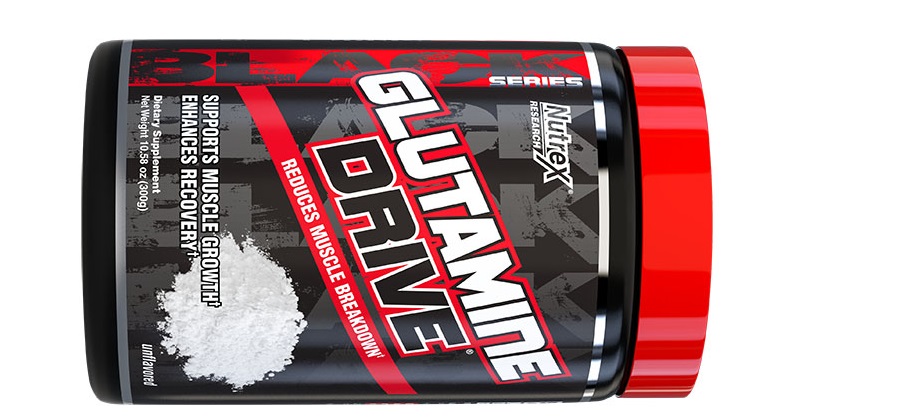Glutamine is an amino acid that is found in the body and is also commonly used as a dietary supplement. It is the most abundant amino acid in the body and plays a vital role in many bodily functions, including muscle growth and recovery, immune function, and gut health.
Supplementing with glutamine can help to boost muscle recovery and growth by providing the body with the necessary building blocks for protein synthesis. It can also help to improve immune function by supporting the health of the gut, which is home to a large portion of the immune system. Additionally, glutamine can help to maintain the health of the gut lining, which is important for maintaining overall gut health.
Glutamine can also be beneficial for weight loss by helping to preserve muscle mass while the body is in a calorie deficit. It can also improve athletic performance by reducing muscle soreness and fatigue.
In terms of dosage, it is generally recommended to take 2-5 grams of glutamine per day, either in supplement form or through food sources such as beef, chicken, fish, eggs, and dairy products. It is considered safe for long-term use, but it is always best to consult with a healthcare professional before starting any supplement regimen.
It's also worth noting that there are different forms of glutamine available, such as L-glutamine and glutamine peptides, which may have different effects in the body.
What are the benefits of supplementing with glutamine?
Supplementing with glutamine can provide a number of benefits, including:
-
Muscle growth and recovery: Glutamine is important for protein synthesis, the process by which the body builds and repairs muscle tissue. Supplementing with glutamine can help to boost muscle recovery and growth by providing the body with the necessary building blocks for protein synthesis.
-
Immune system support: Glutamine can help to support the health of the gut, which is home to a large portion of the immune system. This can help to improve overall immune function and reduce the risk of infection.
-
Gut health: Glutamine can help to maintain the health of the gut lining, which is important for maintaining overall gut health. It can also help to reduce inflammation in the gut, which can be beneficial for those with conditions such as ulcerative colitis or Crohn's disease.
-
Weight loss: Glutamine can be beneficial for weight loss by helping to preserve muscle mass while the body is in a calorie deficit.
-
Athletic performance: Glutamine can improve athletic performance by reducing muscle soreness and fatigue, allowing you to train harder and for longer periods of time.
-
Antioxidant: Glutamine is also an antioxidant which may help to protect cells from damage caused by free radicals.
It's important to note that more research is needed to confirm the benefits of supplementing with glutamine, and it's always best to consult with a healthcare professional before starting any supplement regimen.
How does glutamine help with muscle recovery and growth?
Glutamine helps with muscle recovery and growth by providing the body with the necessary building blocks for protein synthesis. Protein synthesis is the process by which the body builds and repairs muscle tissue. Glutamine is considered a "conditionally essential" amino acid, which means that under certain conditions, such as intense physical activity, the body's demand for glutamine may exceed the amount that can be produced endogenously.
During intense physical activity, the body's stores of glutamine can become depleted, which can lead to muscle wasting and decreased protein synthesis. Supplementing with glutamine can help to replenish the body's stores of glutamine, allowing for proper muscle recovery and growth.
Glutamine also plays a role in maintaining the acid-base balance in the muscle tissue and helps to remove excess ammonia which can accumulate during intense physical activity. This can help to reduce muscle soreness and fatigue, allowing you to train harder and for longer periods of time.
Additionally, glutamine has an anabolic effect, which means it helps to promote muscle growth by increasing cell volume. This leads to a greater ability to perform work and also an increase in muscle mass.
It's important to note that while glutamine may be beneficial for muscle recovery and growth, it's not a magic bullet, and it should be combined with proper nutrition, hydration and training for best results.
Can glutamine be used to boost the immune system?
Glutamine can be used to boost the immune system. Glutamine plays a vital role in maintaining the health of the gut, which is home to a large portion of the immune system. The gut is lined with immune cells, called gut-associated lymphoid tissue (GALT), which help to protect the body from harmful pathogens.
When the body's stores of glutamine become depleted, the gut lining can become compromised, which can lead to a decrease in the number of immune cells present in the gut. This can make the body more susceptible to infection and disease. Supplementing with glutamine can help to replenish the body's stores of glutamine, allowing for proper gut health and a stronger immune system.
Additionally, glutamine has been shown to have an immune-modulatory effect, meaning it can help to regulate the immune system by modulating the activity of different types of immune cells. This can help to reduce inflammation and improve overall immune function.
It's worth noting that more research is needed to confirm the benefits of supplementing with glutamine for immune system support, and it should not be used as a sole treatment for any disease, but rather as a supplement to support overall health. It's always best to consult with a healthcare professional before starting any supplement regimen.
How much glutamine should be taken daily for optimal benefits?
The recommended daily dosage of glutamine can vary depending on the individual and the specific condition being treated.
For general health and wellness, a daily dosage of 2-5 grams of glutamine per day is typically recommended. This can be taken in supplement form or through food sources such as beef, chicken, fish, eggs, and dairy products.
For specific conditions, such as muscle recovery and growth, a higher dosage of up to 14 grams per day may be recommended, but it's best to consult with a healthcare professional for guidance.
It's also worth noting that the optimal dosage can vary depending on factors such as age, weight, activity level, and overall health. It's always best to consult with a healthcare professional before starting any supplement regimen. They can help to determine the appropriate dosage and monitor any potential side effects or interactions with other medications.
Keep in mind that long-term high dose of glutamine supplement can lead to some negative side effects such as nausea, stomach pain, and diarrhea. It's also important to note that more research is needed to confirm the benefits of supplementing with glutamine, and it's always best to consult with a healthcare professional before starting any supplement regimen.
Is glutamine safe for long-term use?
Glutamine is considered safe for long-term use in healthy adults when taken in recommended dosages. Long-term use of high-dose glutamine supplements may have some negative side effects such as stomach pain, nausea and diarrhea.
It's also worth noting that more research is needed to confirm the safety of glutamine supplement use in certain populations, such as pregnant or breastfeeding women, and individuals with liver or kidney disease. In these cases, it's best to consult with a healthcare professional before starting any supplement regimen.
As with any supplement, it's important to be aware of the potential side effects and to use caution when taking glutamine with other medications. It's always best to consult with a healthcare professional before starting any supplement regimen, to ensure that it is safe and appropriate for you.
It's also worth noting that while glutamine may be beneficial, it's not a magic bullet and it should be combined with proper nutrition, hydration and training for best results.
Can glutamine be used in conjunction with other supplements, such as protein powder?
Glutamine can be used in conjunction with other supplements such as protein powder. In fact, many protein powders and post-workout supplements already contain glutamine as an ingredient.
Glutamine, when combined with other essential amino acids found in protein powders, can help to support muscle recovery and growth. It may also help to reduce muscle soreness and fatigue, allowing you to train harder and for longer periods of time.
It's also worth noting that glutamine can be used with other supplements such as creatine and beta-alanine, which are also commonly used to support muscle recovery and growth.
It's important to note that while glutamine may be beneficial, it's not a magic bullet and it should be combined with proper nutrition, hydration and training for best results. It's also important to follow the recommended dosage for each supplement and to consult with a healthcare professional before starting any supplement regimen, to ensure that it is safe and appropriate for you.
How does glutamine affect gut health?
Glutamine plays a vital role in maintaining the health of the gut. The gut is lined with a layer of cells called the mucosa, which helps to protect the gut from harmful pathogens and toxins. Glutamine is the primary energy source for these cells and is essential for maintaining the integrity of the mucosa.
When the body's stores of glutamine become depleted, the gut lining can become compromised, which can lead to a decrease in the number of immune cells present in the gut. This can make the body more susceptible to infection and disease, and increase the risk of leaky gut syndrome, a condition in which the gut lining becomes permeable and allows toxins and bacteria to leak into the bloodstream.
Supplementing with glutamine can help to replenish the body's stores of glutamine, allowing for proper gut health and a stronger immune system. Glutamine also has an anti-inflammatory effect, which can help to reduce inflammation in the gut and improve overall gut health.
Additionally, glutamine may be beneficial for those with conditions such as ulcerative colitis or Crohn's disease. It can help to reduce symptoms such as diarrhea, abdominal pain, and rectal bleeding.
It's worth noting that more research is needed to confirm the benefits of supplementing with glutamine for gut health, and it should not be used as a sole treatment for any disease, but rather as a supplement to support overall health. It's always best to consult with a healthcare professional before starting any supplement regimen.


